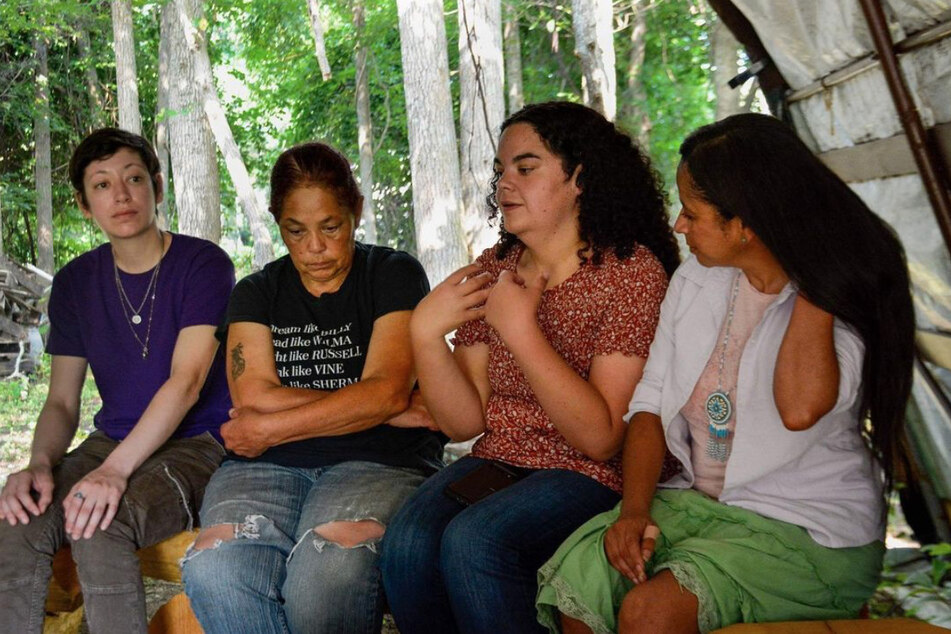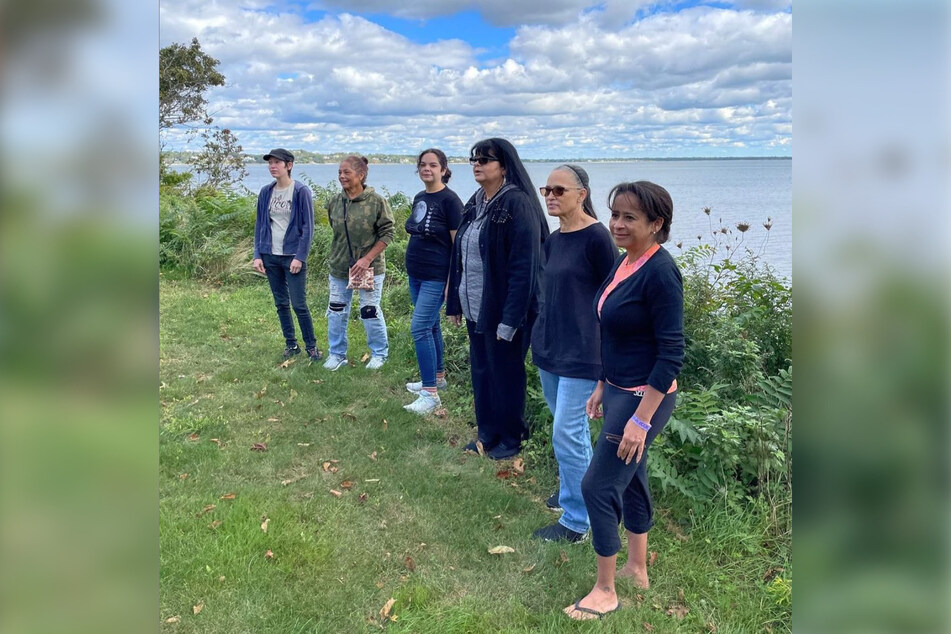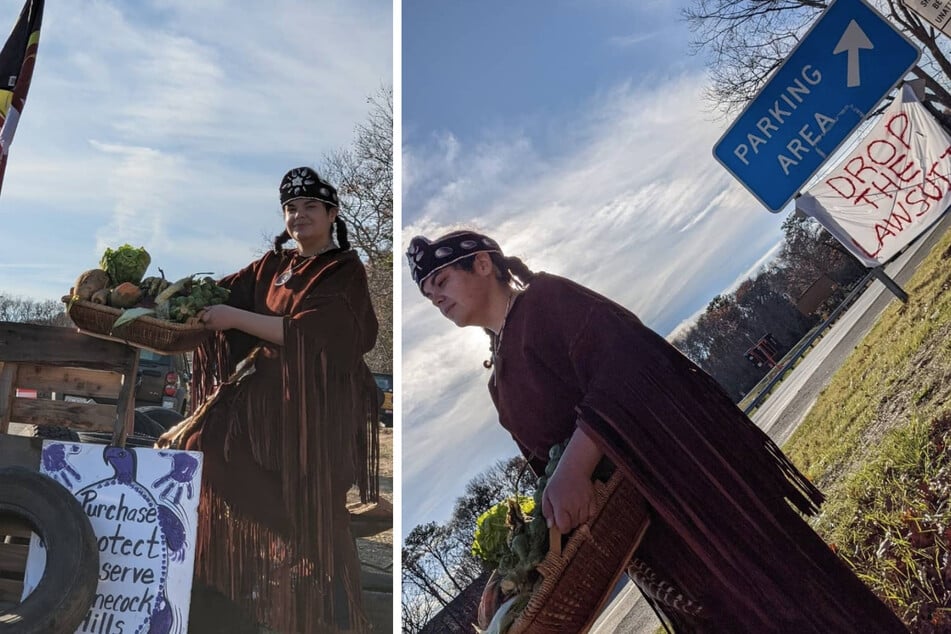"Golf courses on the graves of our ancestors": Shinnecock Nation women speak out on Indigenous Peoples' Day
Southampton, New York – Members of the Shinnecock Nation spoke out against ongoing racism, oppression, and poverty during an Indigenous Peoples' Day virtual truth commission on Monday.

Four Shinnecock women testified during the event, which was organized by the Labor-Religion Coalition of New York State and the Poor People's Campaign.
They spoke on the historic oppression of their indigenous community and the huge wealth disparity on their native lands in Southampton, now one of the country's richest neighborhoods.
"It’s actually very crazy to live with these billionaires for so long and keep your composure due to the unjust way our land was stolen from us," said Shinnecock Nation member and activist Becky Hill-Genia.
"There was no such thing as poverty before 1640. We took care of each other," she explained.
But things changed that year with the arrival of European colonists, who rapidly gobbled up the land and exposed the indigenous people to diseases and alcohol their bodies could not tolerate.
In 1859, the Shinnecock people were relegated to only 800 acres – in a swamp. The homes of indigenous inhabitants are plagued with rat infestations, mold, and decay while wealthy residents relax in luxurious mansions on huge estates.
"It’s very hard to breathe here," Hill-Genia said. "Does anybody care? No, because in the Hamptons, everybody’s rich."
Extreme wealth and environmental devastation

These changes have also impacted the Shinnecock Nation's ability to secure its own livelihood.
Experts in fishing, shellfishing, and whale hunting, the Shinnecock people traditionally lived off the water for 13,000 years, tribal attorney and activist Tela Troge explained.
But when white colonists arrived, they failed to create any kind of septic system, meaning their waste was dumped into the waters the Shinnecock relied on to survive.
The fertilizers wealthy residents use on their enormous lawns year-round also have a devastating environmental impact.
"These millionaires and billionaires, their s*** is polluting our water," Troge lamented, adding that 99% of marine life in the area has died as a result.
Things have only gotten worse since the coronavirus pandemic, which saw a mass exodus from New York City to the Hamptons.
Meanwhile, indigenous monuments and sacred sites continue to be destroyed to make way for more development.
"Everything is documented, and I really don’t for the life of me understand why we still sit here on 800 acres of a swamp while they have taken it upon themselves to destroy the Shinnecock Hills and to play golf, billionaires playing golf, on desecrated graves of our ancestors," Hill-Genia said.
Tips for action

Facing centuries of "genocide," Jennifer Cuffee-Wilson, a Shinnecock elder and leader, said, "Our people are tired. We’re very, very tired. Our ancestors are crying to us, and we’re working very hard to make sure their tears are tears of joy and not of sadness."
"We’re giving back life to our ancestors that they lost because they are crying for us to do it."
But the Shinnecock people can't do it alone. They are asking for everyone's help.
Troge outlined several ways to get involved. First and foremost, she recommended watching and sharing the film Conscience Point to raise awareness of the Shinnecock people's struggle.
She also encouraged Instagram users to follow the Shinnecock Kelp Farmers, a group of six indigenous women who banded together to farm seaweed, fight climate change, and cleanse their waters of nitrogen.
They also asked people to follow Warriors of the Sunrise and visit their LinkTree for ways to help.
One of the best ways of supporting the Shinnecock people is by donating to the Shinnecock Land Acquisition and Stewardship Fund and the Padoquohan Medicine Lodge.
They also asked New Yorkers to use their toolkit to contact Governor Kathy Hochul and urge her to drop the lawsuit against the Shinnecock Nation for their construction of monuments on their own land.
Finally, Cuffee-Wilson urged people of all backgrounds to stand up against the oppression of indigenous peoples: "When our allies speak, it makes a difference. To all you white people out there who believe in us and want to help us, speak up. Don’t be afraid. Do not be afraid. Speak up because that’s the only way things are going to change around here."
Cover photo: Screenshot/Instagram/Shinnecock Kelp Farmers
